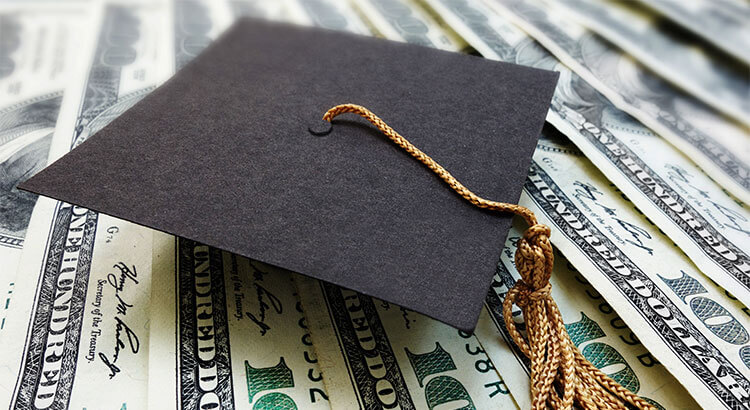Is Student Loan Debt A Threat to Homeownership? No!

Over the course of the last thirty years, a shift has happened. An entire generation has been raised to believe that a college education is their key to unlocking opportunities that were not available to their parent’s or grandparent’s generations.
Due to this, student loan debt has soared to $1.5 trillion and represents the largest category of debt, surpassing credit card and auto loan debt in 2010 and never looking back. As more and more Americans continue their education amongst rising tuition costs, this number will no doubt increase.
Many housing experts have blamed student loans for a drop in the homeownership rate for young families, and to an extent, they’ve been right. Increased debt at the time of graduation has no doubt limited young people from being able to afford a home at the same rate as their parents or grandparents did at the same age.
In a recent Forbes article, the author explained that “in just the class of 2017, the average student has about $40,000 in debt — almost enough for a 20% down payment on a median-priced home.”
The Federal Reserve set out to determine exactly how much impact student loan debt has had on the homeownership rate of those 18-34 (millennials). Their results found that,
“Every $1,000 in student loan debt delays homeownership by about 2.5 months, but it doesn’t prevent homeownership entirely.
In fact, by the time college grads reach their 30s, those with student loan debt have a homeownership rate nearly identical to those who didn’t take out loans.” (emphasis added)
In the Wall Street Journal’s coverage of the Fed report, they found that recent graduates prioritize paying off their student loans over saving for a down payment, despite their desire to be a homeowner. Many with debt want to “get that monkey off (their) back (before they) make any new investments.”
This has just delayed the wave of young home buyers from hitting the market. But as Danielle Hale, the Chief Economist at realtor.com warns,
“2020 will be peak millennial, the year when the largest number of millennials will turn 30.”
By age 30, those who attained a bachelor’s degree right after high school will be one or two years away from paying off their loans and will have been in their career long enough to earn a higher salary.
In the long run, research shows that attaining a bachelor’s degree or more actually increases the chances that someone will become a homeowner.
Bottom Line
If you are one of the many millennials who has prioritized paying down your student loans over saving for a down payment, you’re not alone. Even if you are a couple years away from paying off your loans, let’s get together to help you determine if waiting really is the best decision for you!
To view original article, visit Keeping Current Matters.
The Real Benefits of Buying a Home This Year
Let’s break down why homeownership is worth considering in 2025 and beyond, and how it can help set you up for the future.
3 Reasons To Buy a Home Before Spring
What if buying now — before the spring rush — might actually give you the upper hand? You’ll have less competition, more negotiating power and be able to lock in today’s prices before they rise.
The Secret To Selling? Using an Agent To Get Your House Noticed
The way your agent markets your house can be the difference between whether or not it stands out and gets attention from buyers.
If Your House’s Price Is Not Compelling, It’s Not Selling
Work with a local real estate agent who’s going to be honest with you about how you should price your house.
How Home Equity Can Help Fuel Your Retirement
Your agent will help you understand how much equity to have and how you can use it and help you navigate the entire process.
Why More People Are Buying Multi-Generational Homes Today
According to the latest data from NAR, cost savings are the main reason more people are choosing to live with family today.






